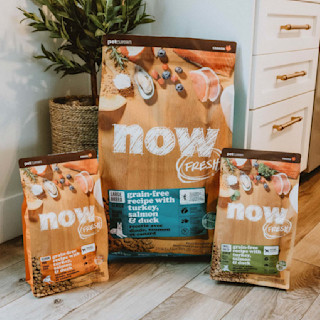August 22, 2025
Can Dogs Eat Cottage Cheese?

If you’ve ever enjoyed a bowl of cottage cheese and wondered if your dog could have a taste, you’re not alone. Many pet parents are curious about whether cottage cheese is a safe and healthy option for their furry companions. So, can dogs eat cottage cheese? Can dogs have cottage cheese regularly? And is cottage cheese good for dogs? Let’s dive into the details.
Is Cottage Cheese Safe for Dogs?
Yes, in most cases, dogs can eat cottage cheese in moderation. Cottage cheese is soft, easy to digest, and packed with protein and calcium—both essential nutrients for your dog’s overall health. However, not all dogs react the same way to dairy, so it’s important to introduce it slowly and watch for any signs of discomfort.
When introducing new treats, always start with a small amount. Treats should make up no more than 10% of your dog's daily caloric intake.
The Benefits of Cottage Cheese for Dogs
Cottage cheese isn’t just a tasty snack—it offers several nutritional benefits for dogs:
High in Protein – Protein is essential for muscle growth and repair, making cottage cheese a great source of high-quality protein for dogs.
Rich in Calcium – Calcium supports strong bones and teeth, which is especially important for growing puppies and senior dogs.
Probiotics for Digestion – Some types of cottage cheese contain probiotics, which can aid in digestion and support gut health.
Mild and Easy to Digest – Compared to other dairy products, cottage cheese is lower in lactose, making it easier to digest for dogs with a lactose sensitivity.

Our Recommendation
Premium-Quality Dog Food Made with Fresh Meat & Superfoods
Crafted by experts and made with high-quality ingredients like cottage cheese, pumpkin, and fresh meats to support your dog’s good health.
View dog foodPotential Risks of Feeding Cottage Cheese to Dogs
While cottage cheese has its benefits, there are a few things to keep in mind:
Lactose Sensitivity – Some dogs are lactose intolerant, meaning even small amounts of dairy can lead to upset stomach, diarrhea, or gas.
High in Sodium – Many store-bought cottage cheese brands contain added salt. Too much sodium can be harmful to dogs, so always choose a low-sodium or unsalted version.
Added Ingredients – Avoid cottage cheese that contains flavorings, artificial sweeteners (like xylitol), or added fruits and herbs, as some of these can be toxic to dogs.
High in Fat – Cottage cheese is a lower fat option compared to most other cheeses, but if over-fed it can lead to unwanted weight gain.
How to Feed Cottage Cheese to Your Dog
If you decide to give your dog cottage cheese, follow these simple tips:
Start Small – Offer a small spoonful and monitor your dog for any digestive issues.
Stick to Plain, Low-Sodium Cottage Cheese – The fewer additives, the better.
Use It as a Topper or Treat – Mix a small amount into their regular food or serve it as an occasional treat.
Not a Meal Replacement – Cottage cheese is nutritious but should not replace a well-balanced diet. The best way to incorporate cottage cheese is to feed a high-quality diet that lists cottage cheese as an ingredient.
Final Verdict: Is Cottage Cheese Good for Dogs?
Yes, cottage cheese can be a good addition to your dog’s diet—as long as it’s given in moderation and your dog tolerates dairy well. Its high protein and calcium content make it a nutritious snack, but always opt for a plain, low-sodium variety. If your dog has never had dairy before, consult with your veterinarian before introducing cottage cheese to their diet.
By keeping portions small and watching for any signs of intolerance, you can safely share this creamy treat with your pup. So next time you’re enjoying a bowl of cottage cheese, you might just have a furry friend hoping for a taste!



